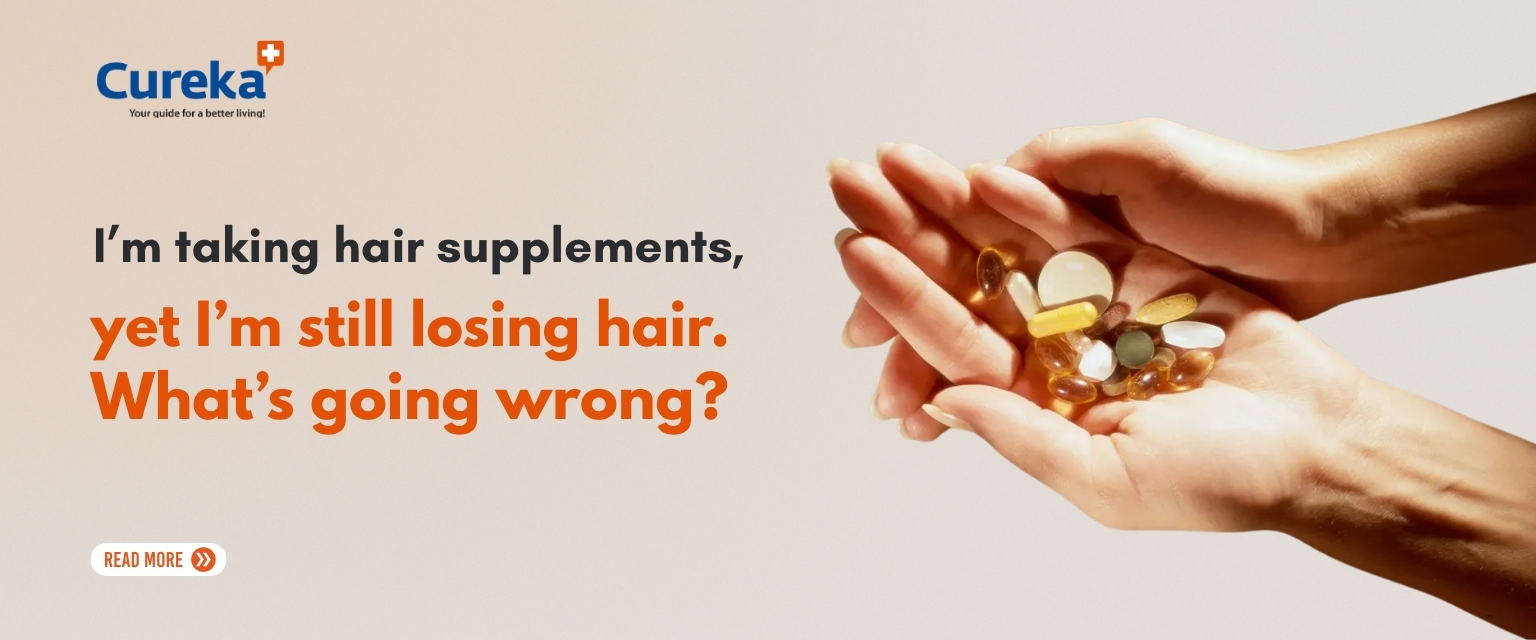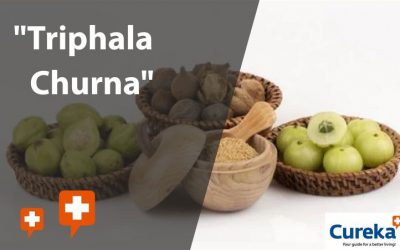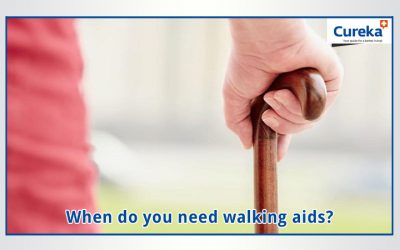I’m Taking Hair Supplements, Yet I’m Still Losing Hair – What’s Going Wrong?
If you’re diligently taking a hair supplement every day and still seeing clumps of hair in your shower drain, you’re not alone. It’s frustrating especially when you believed those supplements were the miracle solution. So, what’s going wrong?
Let’s break down the real reasons behind ongoing hair loss, even when you’re on the “right” track.
1.Hair Supplements Work, But They’re Not Magic
Yes, a hair supplement can support hair health, but it’s not an instant cure. Hair growth is a slow process and the results depend on many factors like:
- Your nutrient deficiencies
- The root cause of hair loss
- Hormonal health
- Genetics
Before asking “Do hair supplements really stop hair loss?”, it’s essential to understand that supplements support your body but they won’t fix internal imbalances or medical conditions which might be the actual cause of hair loss and not deficiency.
2.You Might Be Taking the Wrong Supplement
Not all hair supplements are created equal. Some lack key ingredients that actually promote growth and reduce hair fall. The best vitamins for hair growth include:
- Biotin (Vitamin B7) – improves keratin infrastructure
- Vitamin D – low levels are linked to alopecia
- Iron – deficiency leads to thinning hair
- Zinc – aids tissue repair and scalp health
- Vitamin E – protects hair follicles from oxidative stress
Make sure your supplement contains these essentials. Otherwise, it might not be addressing what your hair truly needs.
3.You Haven’t Been Taking It Long Enough
Hair grows slowly about half an inch per month. For many, visible results from a hair supplement can take 3 to 6 months, especially if the root cause is nutritional.
If you’re expecting overnight magic, you’re setting yourself up for disappointment. Be patient and consistent.
4.The Root Cause May Be Medical
Sometimes, hair loss isn’t just about nutrients. It could be a symptom of:
- Thyroid disorders
- Polycystic ovary syndrome (PCOS)
- Autoimmune diseases like alopecia areata
- Chronic stress or trauma
- Postpartum hormonal shifts
In such cases, even the best vitamins for hair growth won’t solve the issue alone. You may need medical intervention or hormone balancing treatments.
5.Your Hair Routine May Be Working Against You
Sometimes, external damage can override the benefits of your hair supplement. Are you:
- Using heat styling tools too often?
- Over-washing or under-washing your hair?
- Tying your hair too tight?
- Using harsh shampoos or chemical treatments?
- Healthy hair needs internal and external care.
6.You’re Expecting Hair Regrowth in Dead Follicles
If the hair follicles are completely inactive or scarred, no supplement no matter how powerful , can bring them back to life. Supplements help existing follicles function better, but they can’t reverse permanent follicle damage.
So, Do Hair Supplements Really Stop Hair Loss?
The answer: Yes, but only when the cause is nutritional and the supplement is right for you.
If you’re still experiencing hair fall despite supplementation:
- Get a blood test to check nutrient and hormone levels
- Re-evaluate your supplement formula
- Talk to a dermatologist or trichologist
- Be patient—growth takes time
Conclusion
A hair supplement can be an excellent tool in your hair care routine—but it’s not a cure-all. Think of it as part of a comprehensive strategy that includes proper nutrition, stress management, gentle hair care, and addressing medical causes.
If you’re unsure where to start, speak to a healthcare provider about testing your levels and choosing the best vitamins for hair growth based on your specific needs.
References:
- An overview of the genetic aspects of hair loss and its connection with nutrition – 2022 Oct – https://pmc.ncbi.nlm.nih.gov/articles/PMC9710406/
- Hair loss. What causes it and what can be done about it – 1989 MAy – https://pubmed.ncbi.nlm.nih.gov/2652126/











